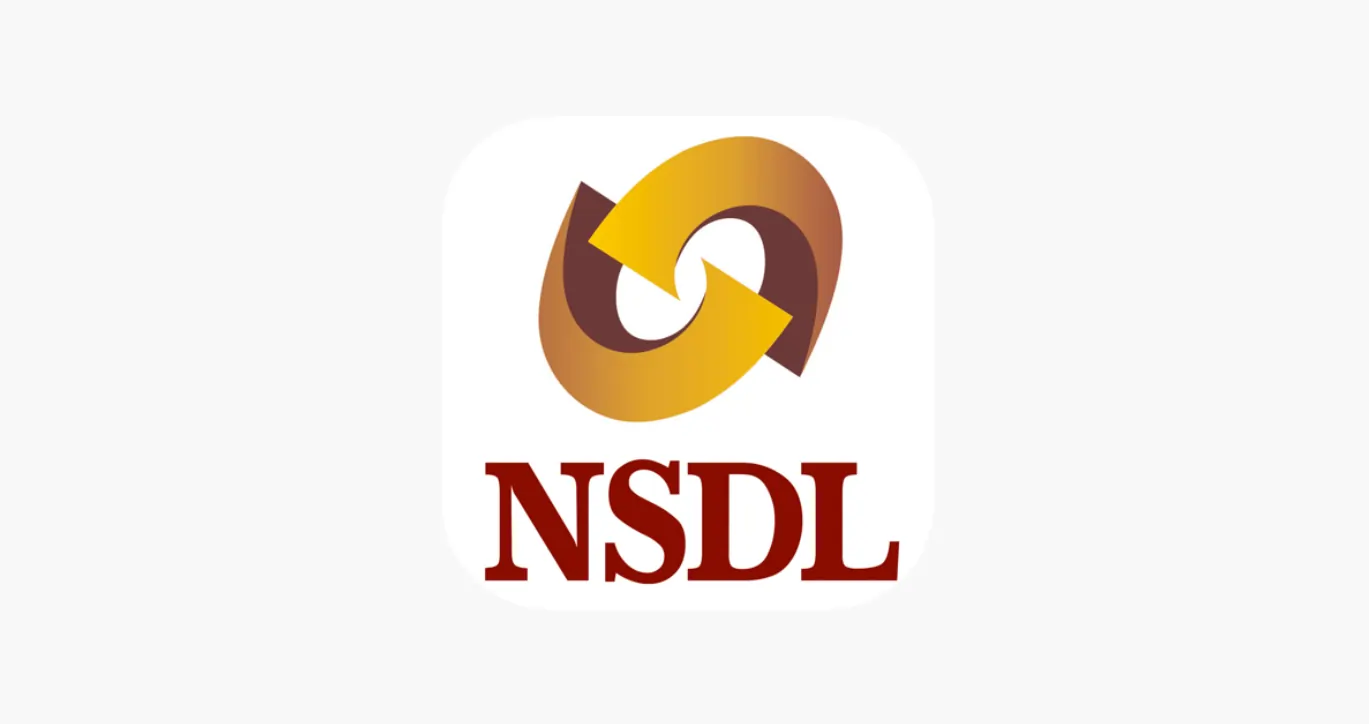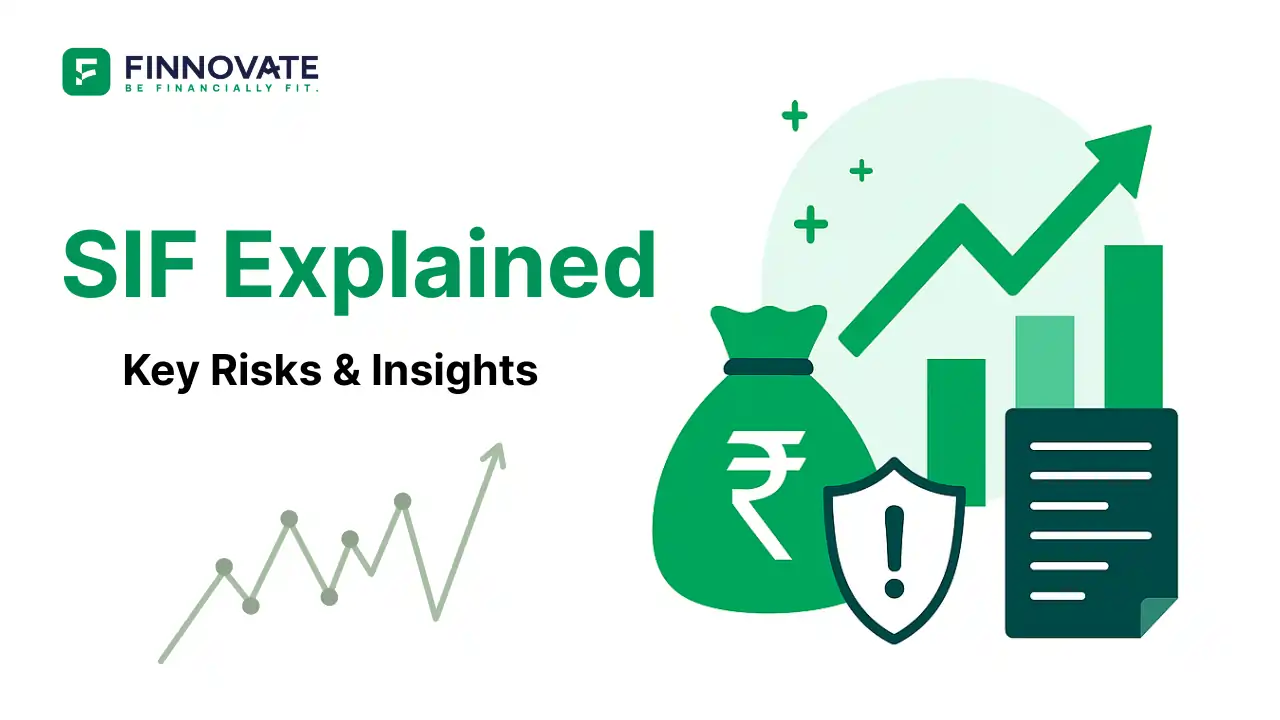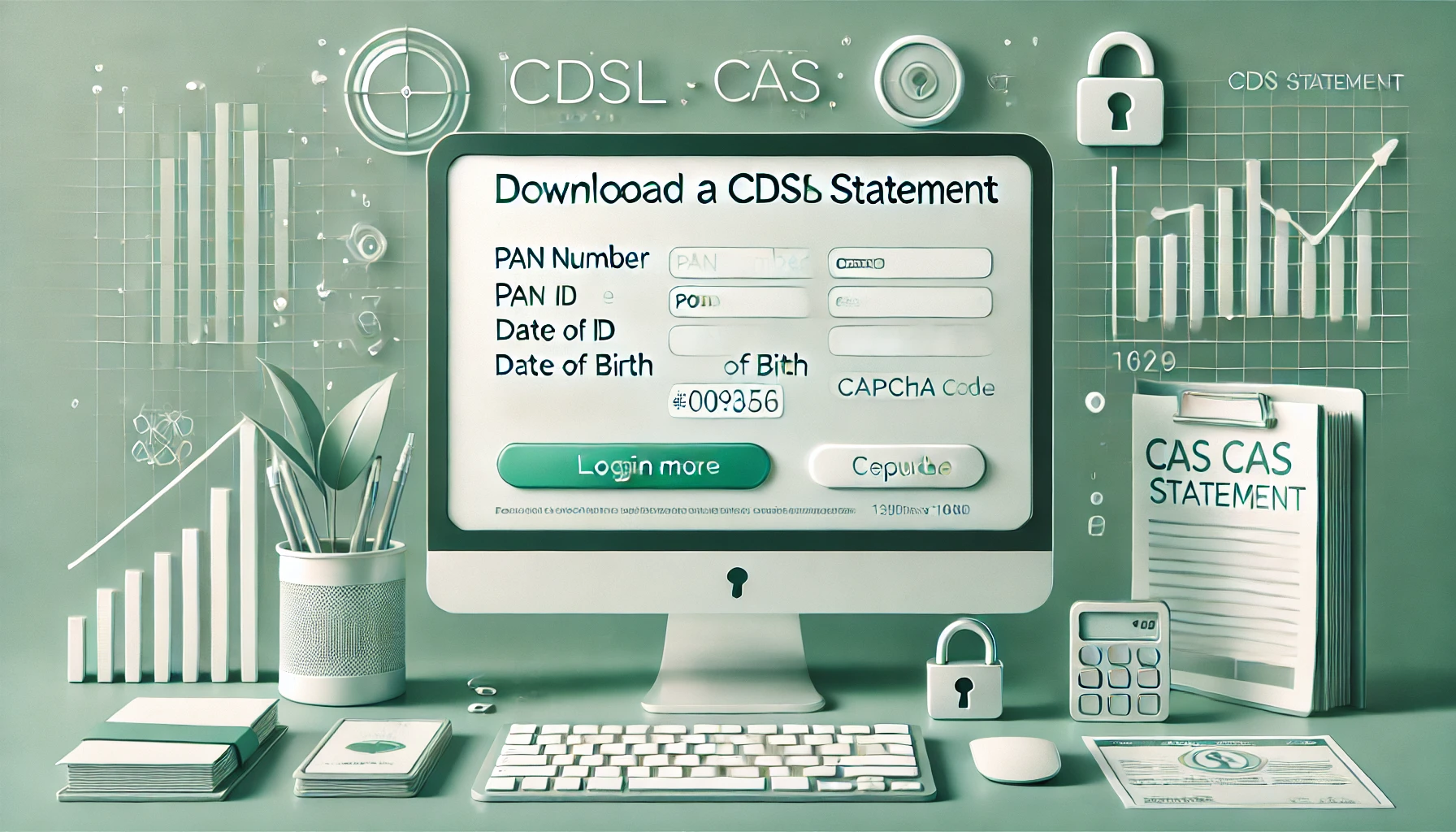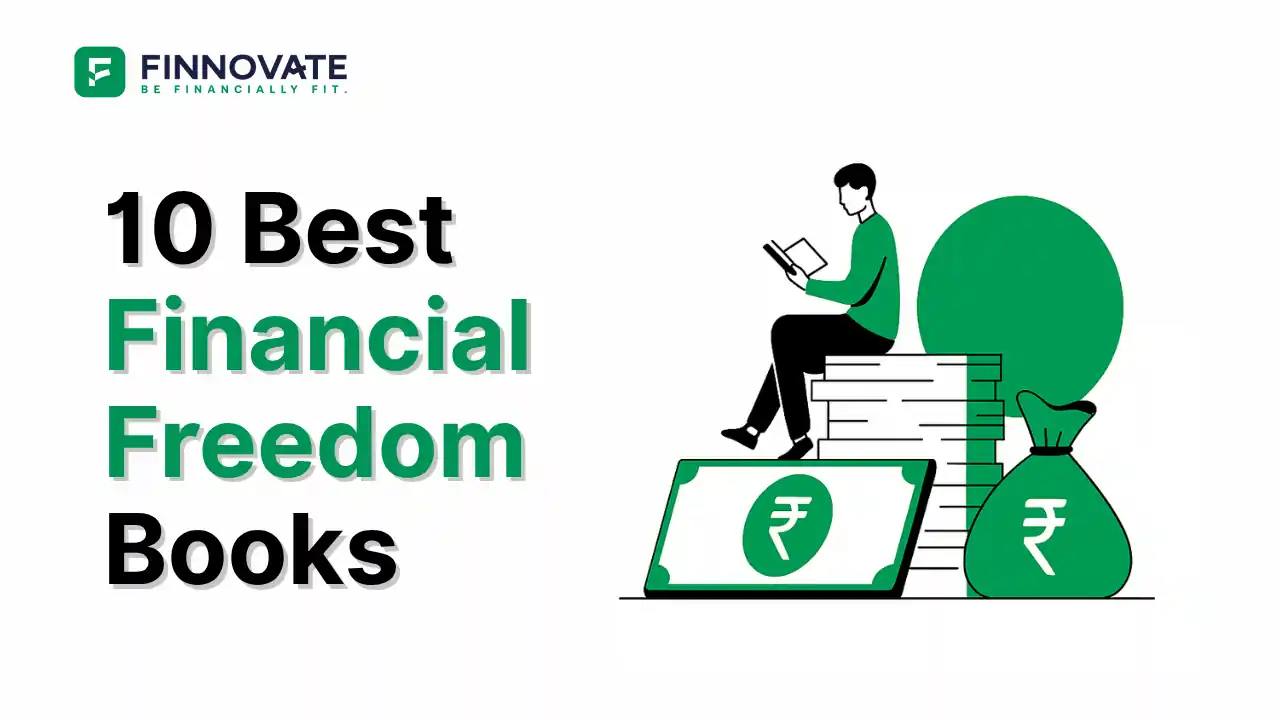
Warren Buffett Steps Down: The Real Legacy Behind His 60-Year Outperformance
Warren Buffett retires at 95, leaving behind more than iconic returns. Here’s how discip...
Imagine waking up on a Monday and not worrying about your bills, EMI, or whether the market will crash today. That's what financial freedom can look like. It doesn't mean you're a crorepati (though that would be nice), but that your money is working for you, not the other way around.
So, how do you get there? It starts with habits. Not big, flashy one-time decisions, but small, consistent actions that compound over time.
In this article, you’ll learn:
Ever heard the quote, “You are what you repeatedly do”? When it comes to money, it’s true.
In fact, behavior and consistency have a larger long-term impact than just earning a high income. Studies from behavioral finance and platforms show that simple and consistent saving habits beat irregular investment decisions in terms of outcomes.
Books like Atomic Habits by James Clear also highlight that the key to lasting success is making the right action easy, consistent, and rewarding.
Think of your money like a car and you being the driver - and you're just driving around aimlessly. That will surely crash!
Setting financial goals gives you direction. They tell your money what it should do and where it should go.
Let’s say you want to buy a house in 5 years or retire early at 50. Just saying “I want to save money” isn’t enough. You need to know how much to save, by when, and why.
That’s where the SMART method comes in. It helps you set goals that actually work:
Start with one clear goal. Write it down. Break it into monthly or yearly savings targets. The more specific you are, the easier it is to follow through.
And remember, your goals can evolve over time. Just don’t leave them to chance.
Let’s be honest - when most people hear the word budget, they think of restrictions, cutting down fun, and saying “no” to everything they enjoy. But that’s not what budgeting is really about.
Budgeting simply means knowing where your money is going and making sure you don’t run out when you need it the most.
One easy way to start is the 50-30-20 rule:
This isn’t a hard rule, but it gives you a simple structure to follow.
Try this for one month: Track every rupee you spend. You can use Google Sheets for writing down your spendings. You’ll be surprised where your money goes. Once you see your spending patterns, you can start making small changes without sacrificing everything you love.
Here’s a simple rule: Before you spend on anything else - pay yourself first.
Sounds odd, right? But here’s what it means: the moment your salary hits your account, the first thing you should do is move a part of it into savings or investments (like SIPs). Not at the end of the month. Not after paying bills. Not after ordering from Swiggy.
Why? Because if you wait till the end of the month to save whatever is left, let’s be real - there’s usually nothing left.
Instead, set up an auto-transfer or SIP on your salary date. So your bank moves that money into a separate account or mutual fund automatically, without you needing to think about it.
You can start small - ₹1,000 or ₹5,000 a month. The amount isn’t as important as building the habit.
Think of it as giving a small gift to your future self. One that will grow over time.
When you’re trying to build wealth but still paying 20% interest on a credit card - it’s like trying to fill a bucket that has a hole in it.
High-interest debt (like credit cards, personal loans, or Buy Now, Pay Later (BNPL) schemes) quietly eats away at your wealth. You pay more in interest than you probably realize - and that keeps you from saving or investing properly.
So what’s the game plan?
There are two popular ways to clear your debts:
There’s no right or wrong - choose what works best for you. The key is to be consistent. Even if you can only pay a little extra each month, it adds up faster than you think.
And once that debt is gone? That same money can go into your savings or investments instead. That’s a powerful shift.
Remember: Getting out of debt isn’t just about money - it’s about peace of mind.
You don’t need a lot of money to start investing. What you really need is time.
The sooner you start, the better your chances of building serious wealth. Why? One word: compounding.
Compounding is like a snowball rolling down a hill. It may start small, but as it keeps rolling (and you keep investing regularly), it grows bigger and faster - thanks to your returns generating even more returns.
Here’s a simple example:
So don’t wait for the “right time,” a higher salary, or some extra bonus to begin. Start small, but start now.
Even ₹1,000 or ₹2,000/month via a SIP (Systematic Investment Plan) can get you going. Just like going to the gym, the hardest part is getting started—but once it becomes a habit, it runs on autopilot.
And over the years, it’s this quiet consistency that builds wealth - not big one-time bets.
Life doesn’t always go as planned. Jobs change. Health issues pop up. Your phone falls into the toilet.
That’s where an emergency fund comes in - your financial safety net.
An emergency fund is simply money kept aside for unexpected situations. Think of it as a backup fuel tank for when life throws a flat tire at your budget.
The golden rule? Try to save at least 3 to 6 months’ worth of your essential expenses - like rent, groceries, EMIs, school fees, etc.
If your monthly basic spending is ₹30,000, aim for ₹90,000 to ₹1.8 lakh in your emergency fund.
Now, where should you keep it?
Start small - maybe ₹5,000 a month. Over time, it builds up. And trust me, when an emergency does hit, you’ll be glad you planned ahead.
Because when life throws a curveball, you shouldn’t have to swipe a credit card or break your investments.
This is one of the oldest financial habits - and still one of the most effective.
It doesn’t matter how much you earn if you spend all of it (or worse, more than it). What truly builds wealth is spending less than you make - month after month, year after year.
It’s not about being stingy or living like a monk. It’s about making conscious choices with your money.
That means:
The real danger is lifestyle inflation - as your income goes up, your expenses go up just as fast. You get a raise and suddenly feel the need to upgrade everything - phone, clothes, dinners, vacations.
But here’s what most wealthy people do: they maintain their lifestyle even after they earn more. That extra money? They save or invest it.
Living below your means isn’t about restriction. It’s about freedom. Freedom to walk away from a bad job, take a sabbatical, or retire early.
Spend on what truly matters. Cut what doesn’t.
You don’t need to be a finance expert to take control of your money - you just need to stay curious.
Money can feel complicated at first, but once you start learning the basics, it actually becomes pretty interesting. The more you understand it, the better your decisions become. And that’s where real power lies.
Just pick one topic a week and explore it. Watch a YouTube video. Read a blog. Listen to a podcast during your commute.
Some great (and free) places to start:
Remember: the best investment you’ll ever make is in your own knowledge.
Let’s face it - life gets busy. Between work, family, and Netflix, it’s easy to forget to pay a bill or skip a SIP.
That’s why automation is your best friend when it comes to managing money.
Think of it like setting up a system that runs on autopilot. You do the setup once, and it quietly works in the background, making sure your financial life stays on track.
Things you can automate:
Why is this so powerful?
When your money moves as soon as you earn, you’re less likely to spend it impulsively. It’s also a big stress-saver - no missed due dates, no last-minute scrambling.
Just like a car, your money needs a check-up too.
Life keeps changing - maybe you got a raise, had a child, took a loan, or your goals have shifted. That’s why it’s important to review your finances at least once a year (or even every 6 months, if you can).
Here’s what a financial review usually includes:
You can do this review by yourself or with a financial planner. Even a basic spreadsheet with your goals, SIPs, and insurance can go a long way.
Think of it as a reset button. It helps you catch mistakes, adjust to new situations, and stay on track.
The best part? This habit only takes a couple of hours a year, but can save (and earn) you lakhs in the long run.
Make it a ritual - maybe every January, or around tax season.
Financial freedom isn’t about luck or high income. It’s about habits. Small actions repeated over time.
Start with one habit this week. Stick to it. Then add another. Because when your money starts working for you, your time becomes your own.
Share it with a friend or partner. And if you're serious about evaluating your financial health, try the free. FinnFit Test today.
Start small. Even ₹500–₹1,000/month is a great first step. What matters most is starting now, not starting big.
Absolutely. Financial freedom is about balance. Spend guilt-free on wants as long as you're saving regularly.
Focus on clearing high-interest debt first. After that, balance both investing and repaying other loans.
No worries. Progress beats perfection. Just pick it back up next month.
No shortcuts - but consistency, automation, and avoiding lifestyle inflation help you get there faster.
Popular now

Learn how to easily download your NSDL CAS Statement in PDF format with our step-by-step g...

Explore what Specialised Investment Funds (SIFs) are, their benefits, taxation, minimum in...

Learn How to Download Your CDSL CAS Statement with our step-by-step guide. Easy instructio...

Looking for the best financial freedom books? Here’s a handpicked 2026 reading list with...